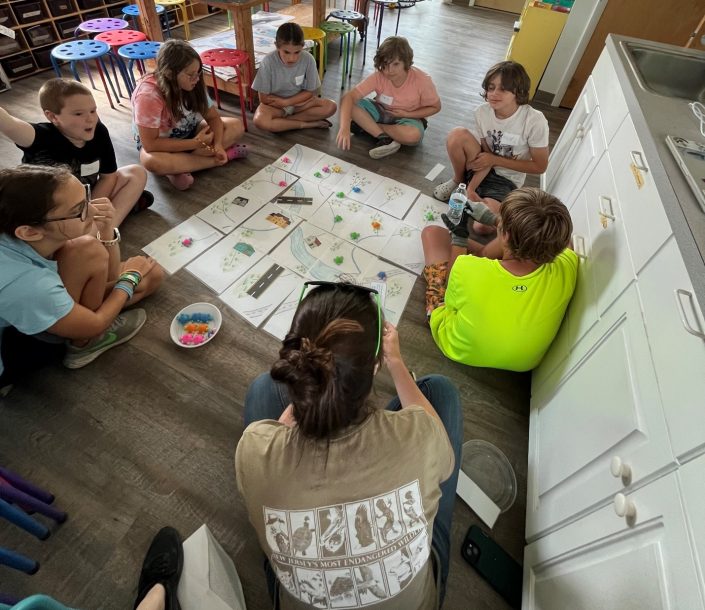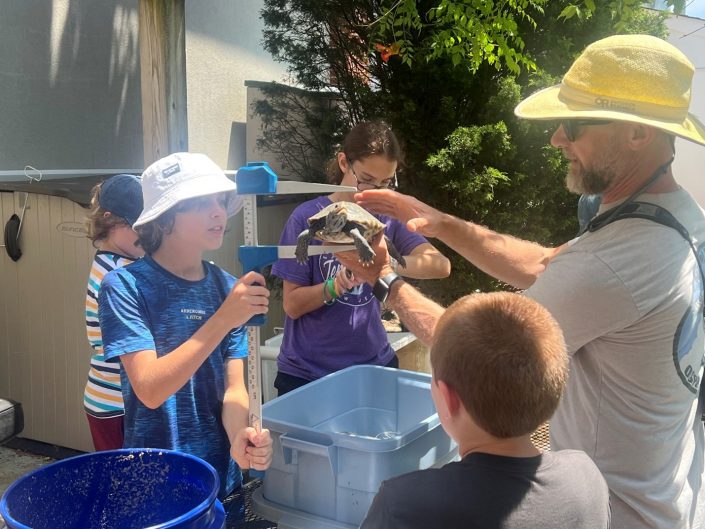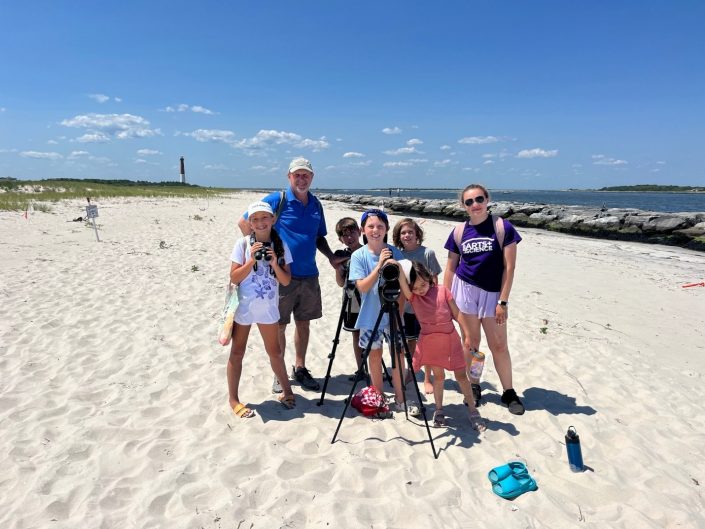Wrapping Up Wildlife Science Summer Camp for 2024
by Rachel McGovern, Communications and Outreach Manager
CWF’s Wildlife Science Summer Camp on Long Beach Island has wrapped up for the 2024 season. This camp was produced by CWF in partnership with the Osprey Foundation and the Long Beach Island Foundation for the Arts & Sciences (LBIF). This year, we offered two distinct weeks of camp, both with hands-on activities and nature exploration.
Our first camp week was “Junior Wildlife Biologists,” which served children ages 10-12. Our intention for this week of camp was to introduce campers to the wildlife studies that are done in New Jersey, learn some of the methodologies used in the field, and witness wildlife data collection.
Campers had the opportunity to work with our wildlife biologists during the week to learn about their areas of expertise. Wildlife Biologist Christine Healy came in for a day of camp to help campers understand land use and its impact on salamanders and to explore how she uses GPS trackers to study turtles.

One camp day gave us a special surprise: we found a diamondback terrapin laying eggs on the grounds of LBIF. Campers headed over to watch her dig a hole, lay her eggs, and bury them. Senior Wildlife Biologist Ben Wurst was there to process the terrapin. He worked with campers to take and record her measurements, showing campers how each instrument worked and familiarizing them with the data that is collected. Later that week, Ben also brought the campers to an osprey nest where he was banding chicks.

Our second week of camp was for children ages 7-9. This camp, called “Beach, Birds, and Biology,” focused on birds with a specific focus on those that live and breed at the Jersey shore. Campers started out their week with a presentation from Woodford Cedar Run Wildlife Refuge, who brought non-releasable, rehabilitated raptors with them. Campers got to see these birds up close, learning about common injuries to wild birds, discovering how their adaptations help them to survive, and exploring the connections that the birds have with their environment.

Throughout the rest of the week, campers engaged in activities like dissecting owl pellets, practicing using binoculars, and building their own “osprey nests.” On Friday, campers had a special day at the beach with Senior Wildlife Biologist Todd Pover and Wildlife Biologist Emmy Casper. During their beach trip, campers searched for piping plovers and played games to help them understand the challenges beach-nesting birds face during their breeding season.

We enjoyed the opportunity to connect young people with nature in a meaningful way, knowing that campers ended their experience with a new appreciation for the wildlife in New Jersey.

Discover more from Conserve Wildlife Foundation of NJ
Subscribe to get the latest posts sent to your email.